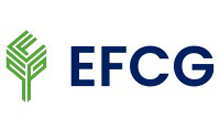
Today, women make up less than one-third of architecture, engineering, and construction (a/e/c) industry employees; minorities and underrepresented communities make up less than one-fourth of the workforce industry-wide. This is according to the latest Environmental Financial Consulting Group (EFCG) survey data. The industry has come a long way since 30 years ago, but more progress is needed. How can industry leaders impact these numbers?
Since our founding in 1990, EFCG has remained committed to the a/e/c industry because of its incredible impact on society and the world. A/e/c firms and those who work within them have many opportunities to help realize positive, sustainable societal change. As this industry continues to work towards advancing diversity, equity, and inclusion (DEI), we are fostering a dialogue to help move the industry forward by collaborating and working with DEI leaders and partners in the space, including the American Society of Civil Engineers (ASCE), the American Council of Engineering Companies (ACEC), and Lockton Companies.
"Firms that fail to prioritize DEI will be left behind, as those with limited diversity are up to 30% more likely to underperform on profitability"
Our research shows prioritizing a diverse and inclusive workplace is not only the right thing to do, it also improves companies’ bottom lines and employee engagement, positively impacting employee recruitment, retention, and job satisfaction. Beyond that, firms that fail to prioritize DEI will be left behind, as those with limited diversity are up to 30% more likely to underperform on profitability.
On Thursday, June 17, 2021, we hosted a virtual workshop as part of a three-part EFCG DEI Series where we discussed recruiting and retaining diverse talent, laying the foundation for an inclusive workplace, and continued development and training. Over 100 people joined the event from 58 different firms with their employee base ranging from 90 to 55,000. The impressive representation from across leadership teams including HR, finance, tech, COO, and CEO, as well as those joining from senior management levels, made it clear firms see this as more than only an HR or executive team issue.
Julie Hasiba, EFCG managing partner and talent strategy practice lead began the day addressing that, while we often think of diversity as one or two things, one may define what makes them diverse in any number of ways. The way you may see someone is not necessarily how they see themself. When applying this thinking to teams and colleagues, we often make assumptions about a person, such as their way of thinking and their ideas based on how we "see" them. These unconscious biases limit the potential of an employee base and the opportunities it can create for its firm. Creating a more inclusive culture requires getting past the superficial understanding of your workforce and team. Only then, can a team reach its full potential.
Beyond race and gender
To start these conversations, our EFCG DEI Series made a point to think beyond race and gender alone, to include discussions around sexual orientation, religion, ethnicity, education, family dynamics, gender identities, mental health, and more. Recognizing that some of these identities can be easier to "see" than others, we asked industry leaders, "how do we recruit for greater diversity, including diversity that is not visible?"
Michelle White, chief people officer of Harris & Associates, offered examples for how her firm is trying to do this, including its focus on being intentional and sensitive around the language the company uses for job postings and all touchpoints with candidates and employees. She also discussed turning education and training into opportunities for conversation and highlighting diverse clients, partners, and employees who are representative of your company’s goals.
Other suggestions from Sumi Sankaran-Deal of POWER Engineers, and Nicole St. Hilaire of Jensen Hughes, include having employee resource groups (ERGs) to host programs and events, so learning and leadership happen organically. For example, an event to celebrate Pride month or a communal dinner during Ramadan where employees less familiar with the traditions can learn about the holiday and develop greater understanding of their colleagues observing the month-long fast. Highlighting societal similarities, celebrating differences, and encouraging learning among your staff is a crucial step in building the foundation for an inclusive workspace.
Depending on the status of a company’s ERGs, they may not yet be ready to create organic opportunities. In the meantime, corporate-led events and education can be an alternative.
Recognizing the influence that company leaders play in emulating an organization's values and shaping its culture, Arup’s global inclusion lead, Jesse Vernon, discussed the importance of "visible leadership." For more junior employees to feel a sense of belonging at a firm, they need to see those at higher levels lead by example and create a sense of "psychological safety" for everyone. When leaders model curiosity, compassion, and collaboration, they cultivate an inclusive workplace where passionate and talented individuals — particularly those from historically marginalized communities — will innovate and thrive.
Recruitment
When it comes to hiring, Shelie Gustafson, EVP & chief people officer at Jacobs, a firm recognized by both Forbes and the Human Rights Campaign Corporate Equality Index as one of the best employers for diversity, spoke from experience, emphasizing the important role HR departments play in identifying a diverse candidate pool during recruiting and how the interview panel should reflect that diversity whenever possible. This approach maximizes the chances of bringing in individuals with different skillsets and qualifications while minimizing the likelihood of bias hindering the selection process.
Carl Henderson from NV5 continued the discussion on recruitment, focusing on systemic solutions earlier on in the talent pipeline. As another firm actively focused on DEI, NV5 is known for its scholarship commitment to the National Society of Black Engineers (NSBE) to support students studying in the fields of engineering and associated data analysis at Historically Black Colleges and Universities (HBCUs) and other higher education institutions. Henderson also spoke about potential collaboration with NSBE and other similar organizations in pre-college STEM initiatives to engage and encourage young talent earlier.
Retention
For a firm that is not hiring in large numbers, panelists recommended the chance to reflect on a firm’s culture, be honest about where it is in its DEI journey, and work hard to retain its underrepresented employees. EFCG senior advisor Ted Lower, one of the organizers of the day’s workshop, noted that retention of these individuals requires a culture that listens to them and supports their development. Transparency in your priorities and aspirations, while being vulnerable as you learn, is a fundamental starting point.
From there, panelists highlighted that new opportunities can arise that engage the entire organization, including corporate social responsibility and philanthropy, employee volunteer programs, scholarship programs, and internship programs. Irvin Bishop, Jr., EVP & chief information officer of Black & Veatch, also stressed the value of marrying DEI with meritocracy to build the most successful teams. As part of another firm that is recognized by both Forbes and the Human Rights Campaign Corporate Equality Index as one of the best employers for diversity, Bishop, Jr. added that continually tracking data-driven DEI metrics and leveraging outside party analysis in the process are effective ways to increase firm awareness and accountability.
Key takeaways
As the workshop came to a close, VHB’s CEO, Mike Carragher, focused the discussion on the importance of personal learning. Challenging the audience as he does himself and his own teams, he asked those listening to think about who they are surrounding themselves with. "Keep seeking different perspectives and do a lot of listening," he urged. "That's the way we will continue learning and unlearning, and, together, we can make this industry the envy of all industries."
The day’s events summed up with the following key messages:
- Be intentional
- Create a safe space to hear and learn from all groups
- Recognize the power of visible leadership
- The personal can be political, and many do not consider this to be a choice
- Clearly identify your company values and what you stand for
- Have patience, we will make mistakes
- Give yourself the grace to make mistakes, but also be willing to learn from them
- Be the example: Show that DEI is a priority
We are grateful to the change-makers and leaders who joined us in our panel discussion for this workshop. "Inclusion is not a destination; it’s a journey," stated Gustafson. It is an effort that must be done in collaboration with one another as partners to drive change. The journey does not have to be, nor should it be, a lonely one. The a/e/c industry will be stronger and more equitable through sharing and supporting one another in these efforts and forming partnerships to better the industry and society as a whole. As the work continues, let’s look to one another for ideas and innovative solutions to build awareness and opportunities for education that help us adopt more inclusive behaviors and become allies.
We invite a/e/c industry CEOs and COOs to continue this conversation in Denver, Colorado at EFCG’s 32nd Annual CEO Conference, where DEI will be a topic of discussion throughout the programming. There will also be a workshop dedicated to DEI on Tuesday, September 28. You can register for the conference via this link. If you have any questions, please visit https://www.efcg.com/executive-leadership or email Dimitri Milionis at dmilionis@efcg.com.
Access further resources and ideas kindly provided by many of our panelists and partners, in collaboration with EFCG, via the www.efcg.com website. Navigate to the "Webinars & Podcasts" tab and click on "Additional Resources" under the DEI Workshop: Action Steps event.
----
Special thanks to the June 2021 DEI Workshop panelists: Nana Berchie, Global People Director - Diversity, Inclusion & Employee Experience, Arcadis; Irvin Bishop, Jr. EVP & Chief Information Officer, Black & Veatch; Mike Carragher, President & Chief Executive Officer, VHB; Sumi Sankaran-Deal, Training Manager, POWER Engineers; Shelie Gustafson, EVP & Chief People Officer, Jacobs; Carl Henderson, Chief Diversity Officer, NV5; Julie Jennings, Principal & SVP, People, GEI Consultants; Sadaf Parvaiz, Global Enterprise Inclusion & Diversity Leader, GHD; Laura Ramey, Chief People Officer, TRC Companies; Au’Janae Roberts, Strategic Communications Advisor, Wood; Nicole St. Hilaire, HR Business Partner and Diversity, Equity & Inclusion Lead, Jensen Hughes; Jesse Vernon, Global Inclusion Lead, Arup; Michelle White, Chief People Officer, Harris & Associates.
This piece was in collaboration with content creator and digital strategist Rachael Silverstein.

About: The Environmental Financial Consulting Group (EFCG) was founded in 1990 and is the leading advisor to architecture, engineering, and construction (a/e/c) firms. Its mission is to provide a data-driven and strategic edge to firms to advance the innovation, sustainability, and success of the industry. EFCG assists financial sponsors seeking to invest in the industry and provides integrated advisory services to a/e/c firms, including M&A Advisory, Financial and Strategic Consulting, Valuations, Peer Benchmarking Analyses, Industry Executive Conferences, and Board Presentations. In the last 30 years, EFCG has served as a retained advisor to over 300 firms, developed a proprietary database of financial and business metrics from our clients, and held nearly 100 executive conferences for leaders in the industry.
